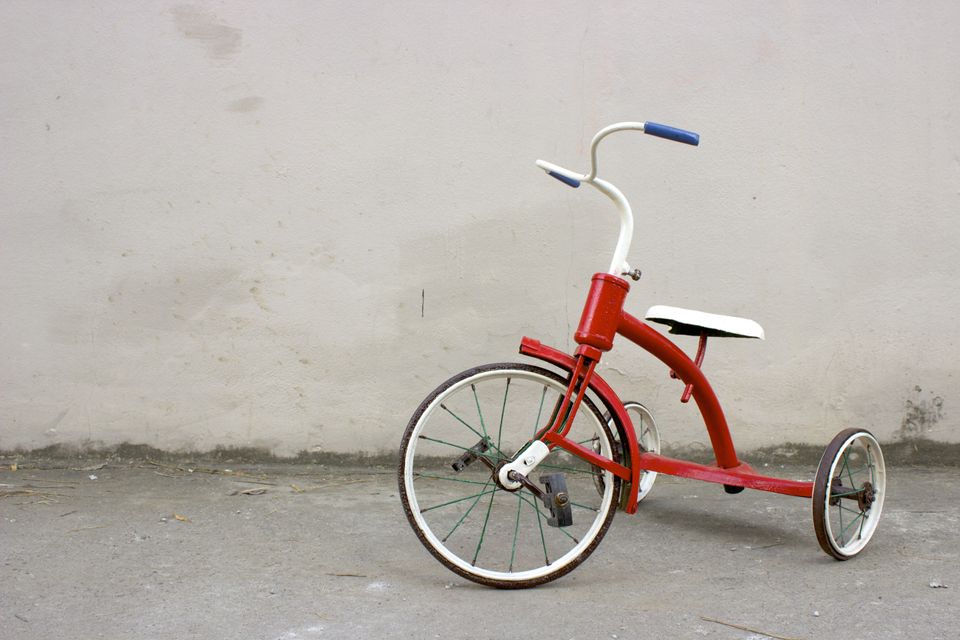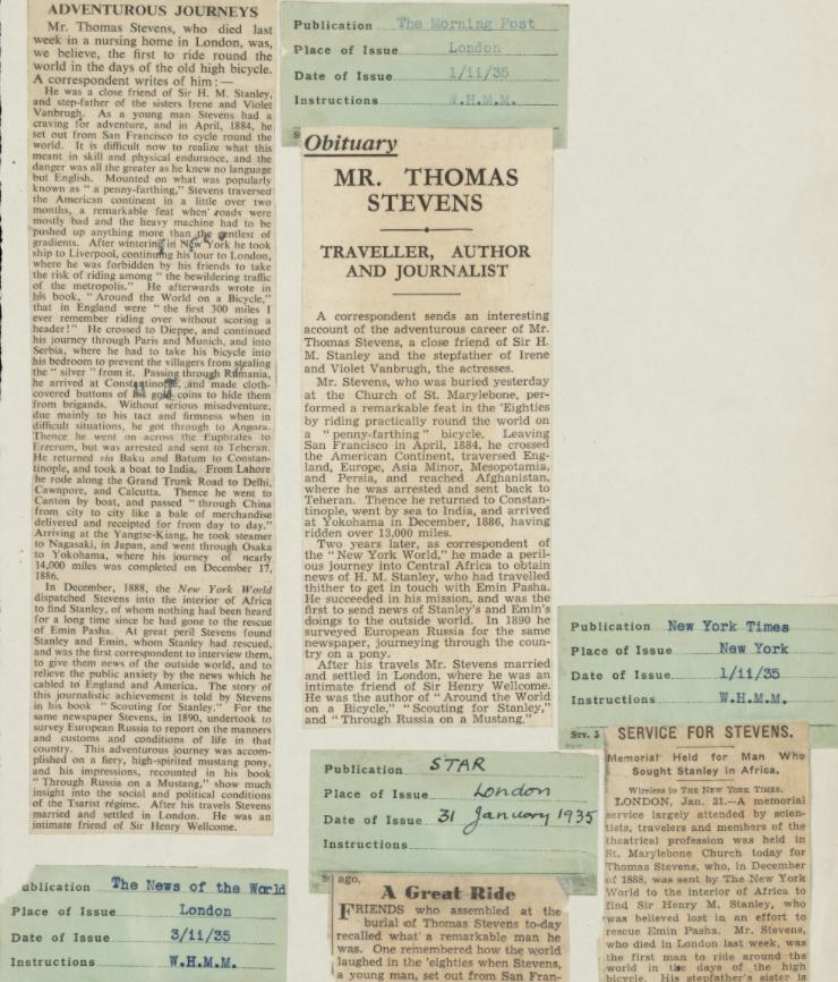Maybe it’s just my age—maybe I’m just a grumpy old man—but for me the expression “third wheel” ranks right up there with “I could care less” in my list of cringe-inducing misuses of language.
I keep hearing it, especially in the context of romance. When a young person is invited along on someone else’s date, they’ll likely say, “I don’t want to be a third wheel.” But as a metaphor, the expression makes no sense. As anyone who has ever ridden both a bicycle and a tricycle can attest, the addition of a third wheel is a good thing. Never once did I run behind one of my children, holding the seat steady, when they were learning to ride a Big Wheel. Bicycles fall over. Tricycles don’t. Third wheels add stability.
The truth is, someone tagging along on a date isn’t a third wheel, they’re just a third person—one who happens to be a fifth wheel. As a metaphor, a fifth wheel makes good sense. Four wheels is pretty much as good as it gets carriage-wise. What would a fifth wheel do but get in the way of the others?
When it comes to numbered-wheel analogies for “something superfluous” The Oxford English Dictionary has no entry for “third wheel.” But its first cited use of “fifth wheel” as a metaphor is in Olive Higgins Prouty’s 1916 novel The Fifth Wheel. In the novel, the narrator’s older brother marries, and his new wife moves into the family home. Then, one by one, all the other family members depart. “I alone was left living with Alec and Edith,” the narrator tells us in chapter five. In other words, she finds herself the third, superfluous person appended to a romantic duo. “I am what is known as a fifth wheel,” the narrator confesses, “a useless piece of paraphernalia carried along as a necessary impedimenta on other people’s journeys.”
#
The same Olive Higgins Prouty used her royalties from such novels as Stella Dallas and Now, Voyager to endow a scholarship at Smith College for “promising young writers.” Sylvia Plath won the award in 1962. In the years ahead, Prouty and Plath grew close, since both writers had suffered mental breakdowns. Prouty helped keep Plath afloat during her famously turbulent marriage to poet Ted Hughes.
In Birthday Letters, Hughes writes:
Prouty was there, tender and buoyant moon,
Whose want of beams so dainty
Put the costly sparkle
Into Cinderella.
And thus, fittingly, the author of The Fifth Wheel became a stabilizing third wheel in the most legendary literary romance of her lifetime.




